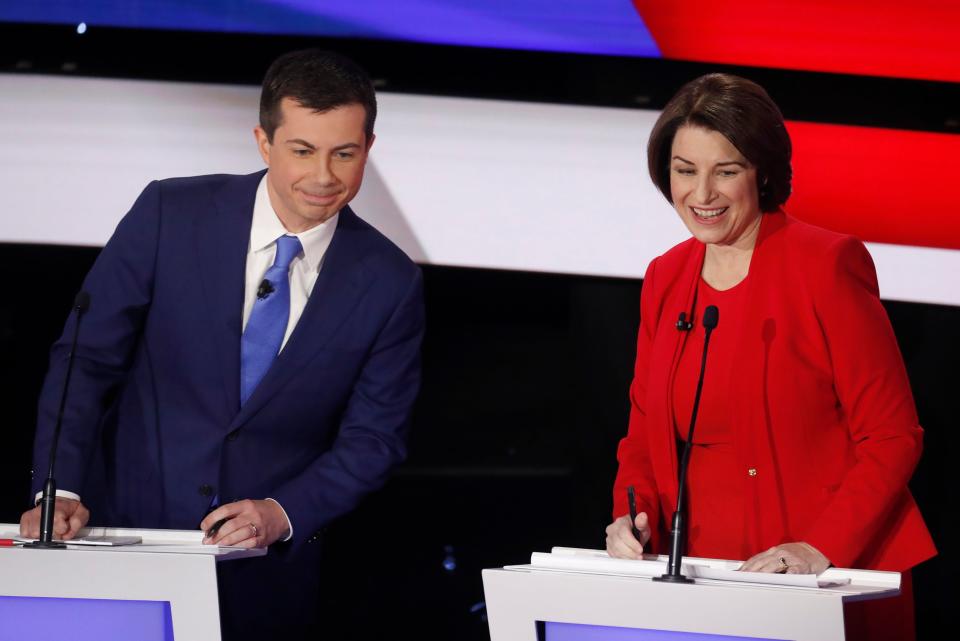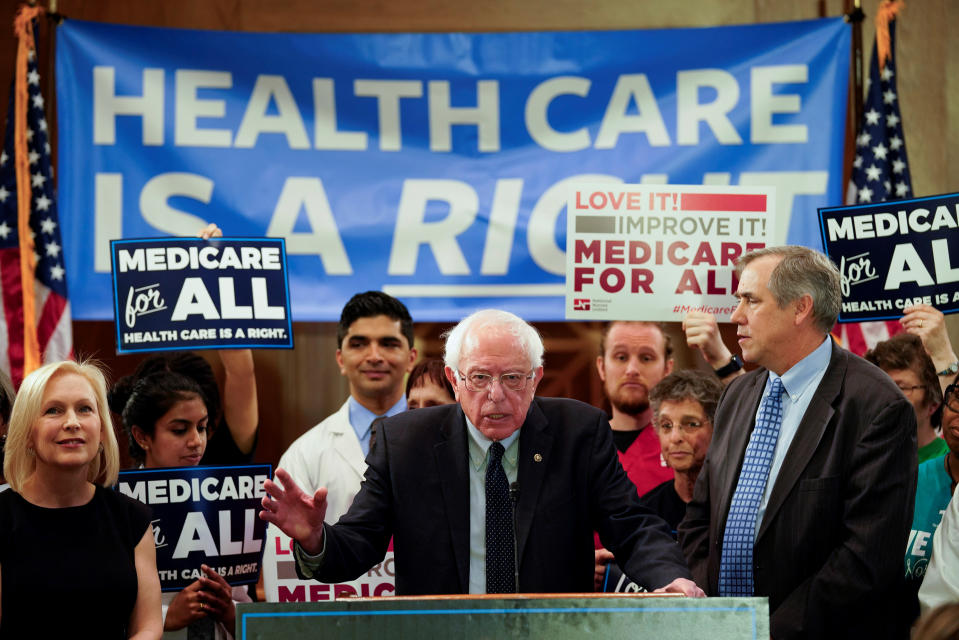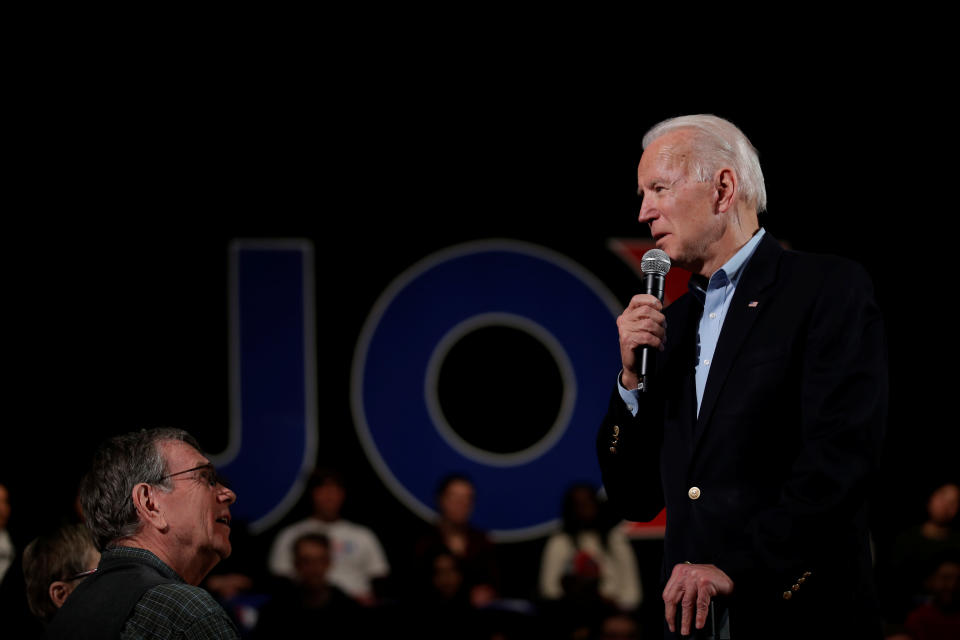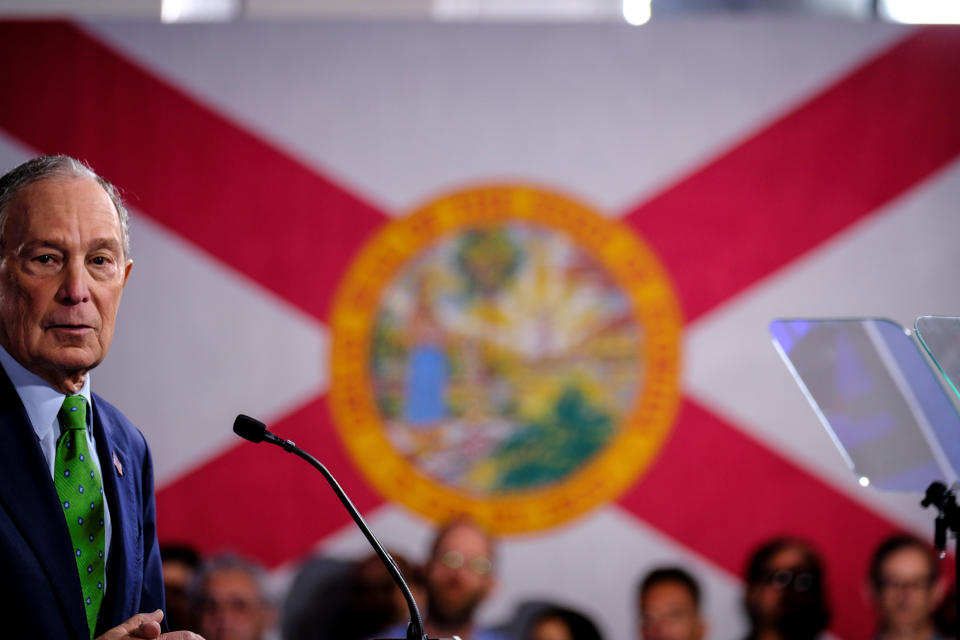3 things we’ll learn from the first 4 Democratic primaries
Finally, some voting!
More than a year after some of the Democratic presidential candidates began campaigning, voting finally begins in Iowa on Feb. 3. The New Hampshire primary is the following week, on Feb. 11, followed by Nevada on Feb. 22 and South Carolina on Feb. 29.
There probably won’t be a clear front-runner coasting to the nomination by the end of February. Vermont Senator Bernie Sanders and former vice president Joe Biden are running close to each other in Iowa and Nevada, and could split the two. Sanders is the favorite to win New Hampshire, while Biden has a commanding lead in South Carolina. Massachusetts Senator Elizabeth Warren, meanwhile, could surprise to the upside. And former South Bend, Indiana Mayor Pete Buttigieg or Minnesota Senator Amy Klobuchar could break out of the middle and land in the top 3 in one or more of these early voting states, as underdog Jimmy Carter did in 1976.

But a few things probably will be clear after these first four contests, such as:
The fate of Medicare for all
Health care is a top issue for Democratic voters seeking relief from soaring costs and byzantine coverage rules. Sanders and Warren favor a huge new government program, Medicare for all, that would cover everybody, eliminate private insurance and require sharp new tax hikes. Biden, Buttigieg and Klobuchar favor more moderate plans that would leave private insurance in place and create a new public plan for people who can’t otherwise find affordable coverage.

The candidates have distinctly different approaches to health care, so the winners in each early-voting state will reveal what voters want on this key issue. The voting results will also hint at whether the health care industry is headed for a major shakeup, as Warren and Sanders would push for, or more moderate Biden-like changes. Watch for health industry stocks to rise on a show of strength by Biden, or fall if the Sanders-Warren wing prevails.
What working-class voters want
In 2016, working-class voters on the Republican side went all in for Trump and his promises to make the system work better for the “forgotten men and women” of America. Will a 2020 Democrat be able to regain working-class votes Hillary Clinton lost in 2016? We’ll get some idea from entry and exit polls showing voter preference by income and education levels.

None of the top three or four Democrats has a solid edge with blue-collar voters. The avuncular Biden boasts of his working class roots and decades of worker advocacy as a Democrat in Washington. Sanders and Warren favor all sorts of programs to tax the wealthy more and use the proceeds to help lower-income Americans care for their kids and pay for college. The blue-collar vote is important in industrial swing states such as Ohio, Pennsylvania, Michigan, Wisconsin and, yes, Iowa, where Trump may be vulnerable because his tariffs have triggered a pullback in manufacturing and a modest decline in hiring. The primaries could provide early hints that Democrats can woo some of these voters from Trump.
Do polls mean anything?
It’s a legitimate question following the missed signals from 2016, when many polls predicted a Hillary Clinton victory over Donald Trump. And the first four primaries will hint whether the 2020 polls are trustworthy or suspect.
Biden has been the consistent frontrunner nationally, according to composites of polls by Real Clear Politics and fivethirtyeight.com. But any state can diverge from the national patterns, sometimes abruptly. One poll number in particular illustrates the fluidity in some state-level races. As the AEI Political Report for January points out, 45% of Iowa Democratic voters who have settled on a candidate say they could be persuaded to vote for somebody else. That’s a lot of flux.

The polls, for now, say Sanders is a slight favorite over Biden in Iowa and a more solid favorite in New Hampshire, which neighbors Sanders’ home state of Vermont. Biden is a modest favorite in Nevada and a heavy favorite in South Carolina. Watch not so much for small variations in the actual vote, but a polling leader who bombs, or a polling laggard who surges.
The big results in the Democratic primary will come on Super Tuesday — March 3 — when voters in 14 states will hit the polls. California and North Carolina moved their primaries up to participate in Super Tuesday this year, making it more momentous than usual. Analysts at Citigroup think it’s most likely Democrats will know who their nominee is by the end of March, allowing investors to start preparing for the implications of a general election contest between (fill in the blank, but probably Biden) and Trump.
Citi sees two outlier possibilities: a small likelihood of an inconclusive Democratic primary that leads to a messy brokered convention over the summer, and a possible dark-horse surge by a candidate such as former New York City mayor Michael Bloomberg. If the first month of voting produces no tangible pattern whatsoever, raise the outlier odds.
Rick Newman is the author of four books, including “Rebounders: How Winners Pivot from Setback to Success.” Follow him on Twitter: @rickjnewman. Confidential tip line: [email protected]. Encrypted communication available. Click here to get Rick’s stories by email.
Read more:
Read the latest financial and business news from Yahoo Finance
Follow Yahoo Finance on Twitter, Facebook, Instagram, Flipboard, SmartNews, LinkedIn, YouTube, and reddit.
